All Articles
Issue Reviewers
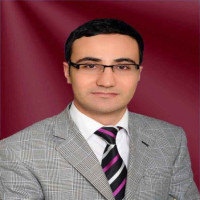


 0009-0006-5526-833X
0009-0006-5526-833X


 0000-0001-9517-5388
0000-0001-9517-5388


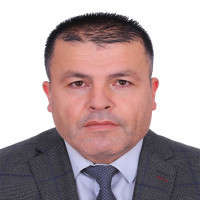

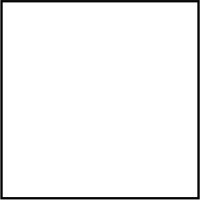
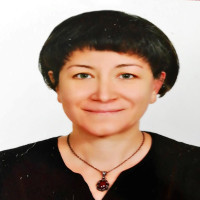




 0000-0002-9196-3958
0000-0002-9196-3958






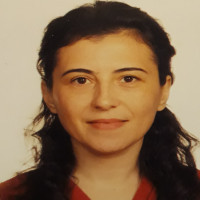

 0000-0001-8716-4638
0000-0001-8716-4638





 0000-0003-3990-6275
0000-0003-3990-6275


 0000-0001-8002-4499
0000-0001-8002-4499





 0000-0002-1144-0453
0000-0002-1144-0453
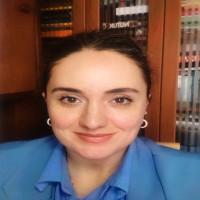

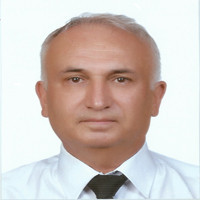
 0000-0001-7317-3023
0000-0001-7317-3023
Aim & Scope
The Journal of Urban Academy is dedicated to advancing multidisciplinary, interdisciplinary, and transdisciplinary research within the conceptual framework of a “city’s academy,” focusing on urban areas where over 80% of the world’s population resides. The journal seeks to publish integrative studies that explore the architectural, administrative, economic, environmental, and engineering dimensions of cities, alongside literary and cultural analyses rooted in the language and identity of urban life. These contributions aim to transcend the boundaries of individual disciplines, fostering a comprehensive understanding of cities and promoting their development into more prosperous, sustainable, and livable environments—both in Turkey and globally.
By adopting a bi-monthly publication schedule (six issues per year), The Journal of Urban Academy aims to accelerate scholarly engagement with urban issues and provide timely, high-quality contributions to the institutional growth of cities, thereby enhancing their value within global civilization.
In this context:
• Prioritizes and promotes multidisciplinary, interdisciplinary, and transdisciplinary research.
• Recognizes the cultural and ethnographic identities of cities as integral to world heritage, aiming to cultivate public awareness of this significance.
• Seeks to strengthen the global recognition of urban culture as a vital component of shared human heritage.
• Emphasizes the preservation and promotion of prehistoric urban heritage, particularly in culturally rich regions such as Anatolia, and highlights the cultural diversity of world cities.
• Operates as an international, peer-reviewed (double-blind with at least three reviewers per article), open-access electronic journal published six times a year.
RECOMMENDATIONS ON QUALITY STANDARDS
Researchers engaged in multidisciplinary, interdisciplinary, and transdisciplinary fields—particularly in urbanization and urban studies—are strongly encouraged to utilize the ISO 37120 standard as a foundational framework in their work. ISO 37120 provides a globally recognized set of indicators for measuring city services and quality of life, promoting data-driven and systematic approaches to urban research.
In alignment with this standard, studies should be structured around the following 17 key categories: Economy; Education; Energy; Environment; Finance; Fire and Emergency Response; Governance; Health; Recreation; Safety; Shelter; Solid Waste; Telecommunications and Innovation; Transportation; Urban Planning; Wastewater; Water and Sanitation.
Incorporating these categories into research design ensures methodological rigor, enhances comparability across studies, and supports the development of sustainable, efficient, and resilient urban systems.
The Journal of Urban Academy welcomes submissions from a broad spectrum of multidisciplinary fields related to urbanization and urban development. These include, but are not limited to, the following areas:
• Political and Administrative Sciences: Public administration, local governments, political science, international relations, urban sociology, urban law, urban crime, gender studies, social psychology, building inspection, disaster and emergency management, site management, migration governance, social engineering
• Environmental Sciences: Environmental management and systems, environmental policy, environmental impact assessment (EIA), sustainability and circular economy, environmental challenges, climate change, environmental economics, and renewable energy
• Urban Planning and Design: Urban architecture, urban design, regional and city planning, urban transformation, conservation and regeneration, landscape planning and design, smart cities, resilient cities, geographic information systems (GIS), land use and management, urban geography, psychogeography, urban information systems, urban transportation, urban morphology, zoning law, settlement history, urban archaeology, and the conservation of cultural and natural heritage
• Architecture and Design: Building systems, building physics, construction materials and technologies, building biology, universal design, architectural survey and restoration, architectural history, interior and industrial design, smart buildings, building information modelling (BIM), construction management, adaptive reuse, digital design, virtual environments, and AI in architecture
• Engineering: Transportation and traffic engineering, coastal engineering, environmental engineering, intelligent transportation systems, geomatics, geotechnical and geological engineering, and disaster resilience
• Transport and Logistics: Transportation management, urban logistics, disaster logistics, maritime affairs, and international trade
• History and Society: History of civilization, political history, art history, archaeology, etymology, ethnography, migration studies, and warfare
• Economics and Business: Urban and regional economics, communication technologies, real estate valuation and management, human resources management, organizational psychology, governance, quality management systems, local government finance, macroeconomic relations, public budgeting, and war economy
• Health and Safety: Public health, hospital management, civil and national defense, emergency preparedness, security, and disaster management
• Tourism and Gastronomy: Tourism management, gastronomy, recreation management, tourism policies, health tourism, and faith tourism
Through the integration and interaction of these diverse disciplines, the journal seeks to publish comprehensive studies that advance knowledge on urban development, promote sustainable urban futures, and support evidence-based policy and practice.
Author Guidelines
Journal of Urban Academy – Editorial and Submission Policies
1. Rights and Responsibilities
• The legal and content-related responsibility for all manuscripts published in this journal lies solely with the authors.
• Journal of Urban Academy acquires only the first publication rights; authors are not required to transfer full copyrights.
• Authors retain copyright for their articles. However, once published, articles cannot be withdrawn or removed, even if the publication becomes paid in the future.
• Partial or full reproduction of articles without proper citation is strictly prohibited.
• Manuscripts previously published elsewhere will not be considered.
• For translated articles, full bibliographic details of the original source (journal title, volume, issue, page numbers, author, country) must be clearly indicated.
• The editorial board reserves the right to request content or formatting revisions.
• If a published article later becomes part of a paid access model, authors will continue to enjoy complimentary access as contributing members.
• Final decisions on whether a manuscript is published and in what format are made by the editorial board.
• While currently open-access and free to all users, the journal may introduce a membership-based access system in the future.
2. Submission and Publication Process
• Submitted manuscripts undergo editorial screening and are not guaranteed publication.
• Articles rejected by editors may be removed from the system.
• Drafts that remain inactive for over one year may be deleted from the database.
• Articles cannot be withdrawn post-publication without a court order.
3. Journal Scope and Structure
The Journal of Urban Academy is a bi-monthly, online publication.
The submission, review, and publication processes are managed through the TÜBİTAK DergiPark platform: https://dergipark.org.tr/tr/pub/kent
News and updates are published at: https://www.kentakademisi.com/
The journal welcomes original interdisciplinary scholarly work focusing on urban issues across fields such as urbanization, public administration, political science, local governance, law, urban planning, architecture, environmental engineering, geography, digital arts, transportation, logistics, renewable energy, and public health.
A full list of covered fields is available under the journal’s Aims and Scope.
4. Manuscript Formatting and Technical Requirements
File Format and Submission
• Manuscripts must be submitted in Microsoft Word (.doc or .docx) format via the DergiPark system.
Templates
• Authors must use the official journal templates for submission:
o Initial Submission Template
o Final Publication Template
Templates and instructions are available under the “Documents” section.
Language and Structure
• Manuscripts may be written in Turkish or English.
• Each article must include a title, abstract, and keywords in both English and Turkish.
• Abstracts should be 150–300 words, summarizing the purpose, methodology, and findings of the study.
• At least five keywords must be provided, carefully selected to enhance visibility in academic databases.
Formatting Requirements
• Paper size: A4, single-column layout
• Font: Calibri, 11 pt
• Paragraph spacing: Before 0 pt, After 8 pt
• Indentation: None
• Line spacing: Multiple, 1.08
• Headings: Bold and numbered (e.g., 1., 1.1., 1.2.). Introduction and Conclusion sections should not be numbered.
Recommended Structure
• Introduction: Purpose, scope, and significance
• Literature Review: Summary of existing research and study's contribution
• Methodology: Research design, data collection, and analysis
• Findings: Presentation of data in a clear and systematic manner
• Discussion: Comparison with existing literature and interpretation of results
• Conclusion and Recommendations: Summary of findings, suggestions for practice or policy, and study limitations
Article Length
• Natural Sciences (SCI, AHCI): 3,000–5,000 words
• Social Sciences (SSCI): 5,000–8,000 words
• Interdisciplinary Studies: 5,000–6,000 words
5. Citations and References
• Use the APA 7th edition style for in-text citations and references.
• Figures, charts, images, and illustrations must be numbered systematically and formatted according to APA 7.0 guidelines.
6. Similarity (Plagiarism) Reports
• Submissions must include a similarity report from iThenticate, Turnitin, or intihal.net.
• Acceptable thresholds:
o Total similarity: ≤ 20%
o Per source: ≤ 1%
o Thesis-derived articles: ≤ 3%
o Legal citations: ≤ 10% per citation
• Similarity in headers/footers from templates is excluded.
• If a revised similarity check reveals a rate above 22%, the article is rejected.
If between 20–22%, the article is returned for revisions and a new report is required.
7. Extended Abstract
• Articles written in Turkish must include an extended abstract in English, following the journal’s template.
8. Author Information
• Initial submissions must be anonymous (no author details).
• Upon acceptance, authors must upload the final version with the following:
o Title, abstract (in both languages)
o Author’s full name, academic title, affiliation, and contact information
9. Contact
For technical issues, authors may contact: editor@kentakademisi.com
Ethical Principles and Publication Policy
The publication procedures followed in Kent Academy are designed to ensure the objective and reputable development and dissemination of knowledge. These procedures directly reflect the quality of the work of the authors and their supporting institutions. Peer-reviewed studies are essential as they embody and support the scientific method. It is crucial that all parties involved in this process (authors, readers, researchers, publishers, reviewers and editors) adhere to ethical standards.
In accordance with publication ethics, Kent Academy expects all participants to fulfill the ethical responsibilities described below. These responsibilities are based on the Open Access policies and the principles issued by the Committee on Publication Ethics (COPE).
In certain matters beyond the scope of the COPE Ethical Principles and the Press Ethical Principles, final authority rests with the ICAM NETWORK Ethics Board, the editorial body of our journal.
A. Ethical Responsibilities of Authors
Authors submitting papers to Kent Academy must adhere to the following ethical responsibilities:
1. Originality: Submitted manuscripts must be original. If previous studies or sources are used, proper and accurate citations and references are mandatory. Methods such as paraphrasing without citing sources are considered ethical violations.
2. Integrity of authorship: Individuals who do not make an intellectual contribution to the content should not be listed as authors.
3. Order of authorship: The author who makes the greatest contribution to the work must be listed as the first author. Academic titles alone should not determine authorship priority.
4. Conflict of Interest: Any potential conflicts of interest or relationships that may influence the manuscript should be disclosed.
5. Data Requests: Authors must be willing to provide raw data on their work if requested during the review process.
6. Permission and Consent: Authors must have the necessary rights or permissions for the data and research analyzes used, as well as documented consent from participants in experiments or surveys, even if the journal does not specifically request these documents.
7. Correction and Retraction: Authors are required to notify the editor or publisher immediately if they discover an error in their published, early-view, or peer-reviewed paper and must cooperate with correction or retraction procedures.
8. Exclusive Submission: Manuscripts submitted to Urban Academy should not be simultaneously reviewed by any other journal. Previously published manuscripts cannot be resubmitted to Urban Academy.
9. Author Changes: No authorship changes (adding, removing, or rearranging authors) can be proposed after submission unless the corresponding author submits a request signed by all authors to the Editor through DergiPark.
B. Ethical responsibilities of the editors
Editors and associate (field) editors of Urban Academy are expected to adhere to the COPE Code of Conduct and the COPE Guidelines for Best Practices for Journal Editors and the "COPE Guidelines for Best Practices for Journal Editors".
Editors are responsible for every publication in the journal. In this context, the editors have the following duties and responsibilities:
1. Editors should endeavor to meet the information needs of readers and authors.
2. Editors must continuously work to improve the journal and consider its growth and development.
3. Editors should actively participate in improving the quality of published articles without delay.
4. Editors should support freedom of thought and work diligently to incorporate national and overseas research into the articles.
5. Editors must continue editorial processes without compromising intellectual property rights or ethical standards.
6. Editors must ensure transparency and clarity in publications regarding issues that require correction or explanation.
7. Editors should offer supportive guidance to the Associate Editors, helping to direct them through phone and online support.
8. Editors are responsible for taking feedback from readers, researchers and practitioners and providing clear and informative responses.
9. Editors should not disregard positive recommendations from reviewers unless there is a serious problem with the paper.
10. New editors should not change decisions made by previous editors unless there is a serious problem.
11. Editors should support field editors in carefully managing the double-blind process, informing them of potential violations and warning them if necessary.
12. Editors responsible for the publication process should ensure the effective and efficient use of the peer review and editorial processes.
13. Encourage local editors to contribute to the development of the peer review pool.
14. Editors are responsible for protecting the intellectual property rights of all published articles and defending the rights of the journal and authors in the event of infringement. They are also responsible for ensuring that the content of published articles does not infringe the intellectual property rights of other publications.
15. Editors should consider persuasive criticism of work published in the journal and adopt a constructive attitude towards such criticism.
16. Authors should be given the right to respond to criticism of their work.
17. Editors should carefully consider complaints from authors, reviewers or readers and respond in a clear and explanatory manner.
18. The journal owner, publisher or other political or commercial factors should not influence the editors’ independent decision-making process.
19. Editors should ensure that errors, inconsistencies or misleading assessments in articles are corrected promptly.
C. Associate (Section) Editors’ Ethical Responsibilities
1. Reviewers should be selected in accordance with the topic of the study
2.The journal is responsible for providing reviewers with the information and guidelines necessary for the review process
3. The journal must proactively identify and address any potential conflicts of interest between authors and reviewers.
4.In accordance with the double-blind peer review system, the journal must ensure the confidentiality of the reviewers' identity and carefully check that no identifying information such as names or personal details are included in the review forms or manuscript content
5. The journal should use methods that encourage reviewers to evaluate submissions impartially, scientifically and objectively.
6. Reviewers should be evaluated based on criteria such as timely responses and performance. The journal should use motivating and positive language when communicating with reviewers and avoid content debates.
7. Policies and practices to improve reviewer performance should be established and implemented.
8. Steps should be taken to ensure that the reviewer pool is dynamically updated.
9. If two reviewers give a negative review to a submission, but the article is considered to be of high value to the Urban Academy and the academic community, the journal may seek additional reviews from a third or fourth reviewer.
10. The journal should remain in regular contact with the author throughout the review process
11. The journal should respond politely and constructively to rejected manuscripts and provide authors with a clear, itemized list of reasons for rejection.
D. Ethical Responsibilities of Reviewers
Reviewers evaluating submissions for Urban Academy must adhere to the following:
1. The Urban Academy peer review process is based on the principle of double-blind review. Reviewers cannot communicate directly with authors, and their reviews and comments are submitted through the journal's administrative system. During this process, the reviewers’ comments on the evaluation forms and full texts are forwarded to the author(s) via the editor.
2. Reviewers should only review papers that fall within their area of expertise.
3. The review should be impartial and confidential.
4. If a reviewer believes that they may have a conflict of interest during the review process, they must decline to review the paper and notify the associate editor.
5. In accordance with the principles of confidentiality, reviewers must destroy the manuscripts they review after the review process. They may only use the final versions of the manuscripts once they have been published.
6. The reviews must be objective and based solely on the content of the manuscript. The reviewers must ensure that factors such as nationality, gender, religious beliefs, political views or commercial considerations do not influence their assessments.
7. Reviews must be constructive and written in a polite tone. Hostile, defamatory or derogatory personal comments should be strictly avoided.
8. Reviewers are expected to complete the assessment of accepted papers within the specified timeframe and to adhere to the ethical obligations outlined above.
9. Urban Academy ensures the protection of ownership and copyright for each published article and undertakes to keep records of all published copies.
10. The journal assumes responsibility for preventing and combating any form of scientific misconduct, citation manipulation or plagiarism in scientific publications.
E. Responsibilities of the Publication Committee
The Publications Committee is responsible for ensuring that all published manuscripts comply with the journal’s policies and international standards. The Committee:
1. The Editorial Board consists of the Editor-in-Chief, Associate Editors, Technical Editors and Language Editors.
2- The journal's shortcomings in terms of content, technology and appearance should not be overlooked. Any problems identified should first be reported to the person or department responsible.
3- The Editorial Board must actively express its views and opinions in virtual or in-person meetings.
4- The Editorial Board should meet regularly to review the publication policy and contribute to the development of the journal.
5- The publisher or its representative must not interfere with the content of the journal or disrupt the smooth functioning of the processes in any way.
6- The Editorial Board is responsible for supervising all processes related to the articles submitted to the journal. The editors are the final decision makers in these matters, regardless of economic or political considerations.
F. Protection of Personal Data
1. The Urban Academy is responsible for protecting the personal data of the subjects or images included in the peer-reviewed studies. The journal may reject work in which there is no documented consent from the subjects involved.
2. The Urban Academy is committed to protecting the personal data of associate editors, reviewers, authors and readers
3. The Urban Academy is committed to ensuring the protection of human and animal rights in peer-reviewed studies. The journal is authorized to reject work that does not have ethical approval for studies involving human subjects or proper permissions for experimental research.
G. Dealing with Misconduct and Abuse of Authority
Urban Academy is responsible for taking action against possible misconduct and malpractice. This includes the thorough and objective investigation of complaints, careful evaluation and disclosure of relevant findings. These tasks are the responsibility of the publisher.
H. Research and Publication Ethics
Research ethics aims to address concerns about neglecting the health, well-being and rights of individuals. It ensures that scientific research is conducted according to high ethical and scientific standards. Research ethics includes the realistic and needs-based design of studies, safeguarding the integrity of participants, the proper completion of research and the honest publication of results. Today, these requirements are based on fundamental ethical principles. Principles such as autonomy, non-maleficence, beneficence and justice provide a solid framework to ensure compliance with ethical standards throughout the research process.
For articles published in Urban Academy, ethical issues, challenges and disputes that may arise — including potential conflicts of interest between authors and third parties during the editorial process, publication or afterwards — are evaluated within the framework of universal international legal principles, ethical standards and general ethical regulations in Turkey. The final decisions on these matters are made by the ICAM Network Ethics Committee.
I. Reporting Ethical Concerns
Any ethical misconduct or content concerns regarding Urban Academy should be reported via email to info@kentakademisi.com Submissions will be reviewed and adjudicated by the ICAM NETWORK Ethics Board.
Price Policy
1. Our journal is open access, and an editorial publication fee is charged to the author.
I. AUTHOR FEES
a. The publication charge/fee to be paid by the author is requested before the article is uploaded.
b. By the decision of the Publication Board No. S:106/2024/6/3 dated 22/10/2024, the article submission fee is 5,000 Turkish lira or $ 150 as of 15/11/2024. Subsequent article submission fee increase dates will be determined by the Kent Academy Editorial Board.
c. The fee requested from the articles sent to our journal for publication is not dependent on the Acceptance / Rejection condition. This condition is outlined in Decision No. 2021.18.643 on Predatory/Shady Journals, adopted at the Council of Higher Education session held on December 30, 2021, and numbered 2021.18.
d. The fee payment requirement applies to all authors. Payments are transparent and auditable, which applies equally to each author. Reports on this issue are published in our journal at the end of each year. The authors jointly calculate the fee in equal proportions among themselves. Payment is made from the authorized author's account.
to. Those who work as field editors at least twice a year in our journal are given a 50% discount on the publication fee.
e. In our journal, a 50% discount is applied to the publication fee of section editors who carry out and complete at least two section editing processes in a year. This discount is valid for each author's share of multi-author articles.
f. Publication fees are used for the secretariat, preparation for publication, and journal accreditation costs.
g. Fee payments can be made through the TL and USD accounts of the Black Sea Poets and Author Association, the publisher of our journal.
II. FEES FROM READERS and/or SUBSCRIPTION SYSTEMS
a. The Journal of Urban Academy does not charge any fees to its readers.
b. Provisions requested by the Journal of Urban Academy, regarding libraries and special directories, are reserved.
Karadeniz Şairler ve Yazarlar Derneği IBAN ACCOUNTS:
IBAN NUMBER (TL) TR: 070001500158007316964344
IBAN NUMBER (USD) TR: 530001500158048021390124
Detailed Urban Academy (Kent Akademisi) Publication Fee Policy can be accessed from the link below or file D-2 in our Documents menu:
https://dergipark.org.tr/tr/download/journal-file/26111
International Refereed and Indexed Journal of Urban Culture and Management | Kent Kültürü ve Yönetimi Uluslararası Hakemli İndeksli Dergi
Information, Communication, Culture, Art and Media Services (ICAM Network) | www.icamnetwork.net
Address: Ahmet Emin Fidan Culture and Research Center, Evkaf Neigh. No: 34 Fatsa Ordu
Tel: +90452 310 20 30 Faks: +90452 310 20 30 | E-Mail: (int): info@icamnetwork.net | (TR) bilgi@icamnetwork.net

